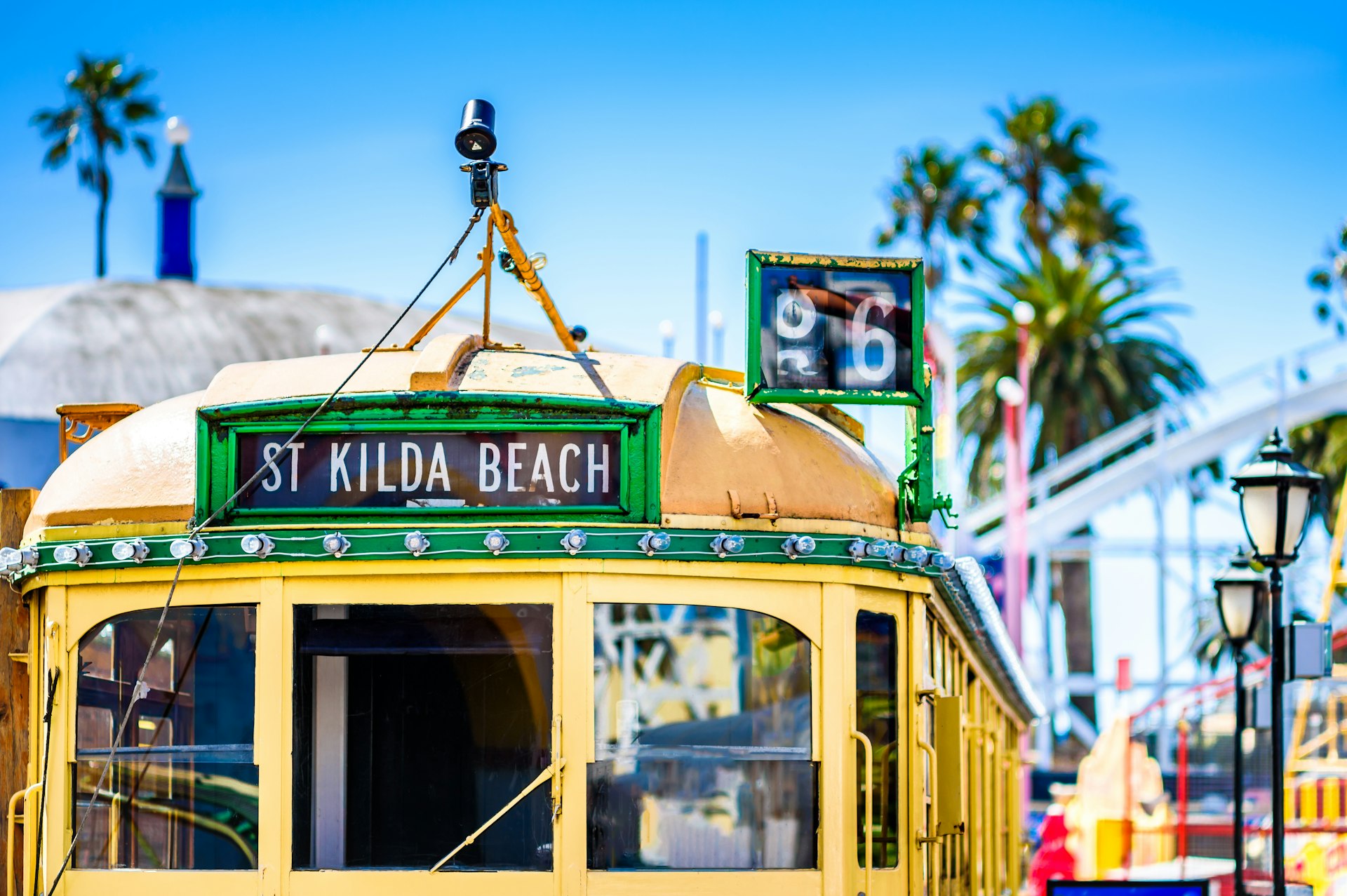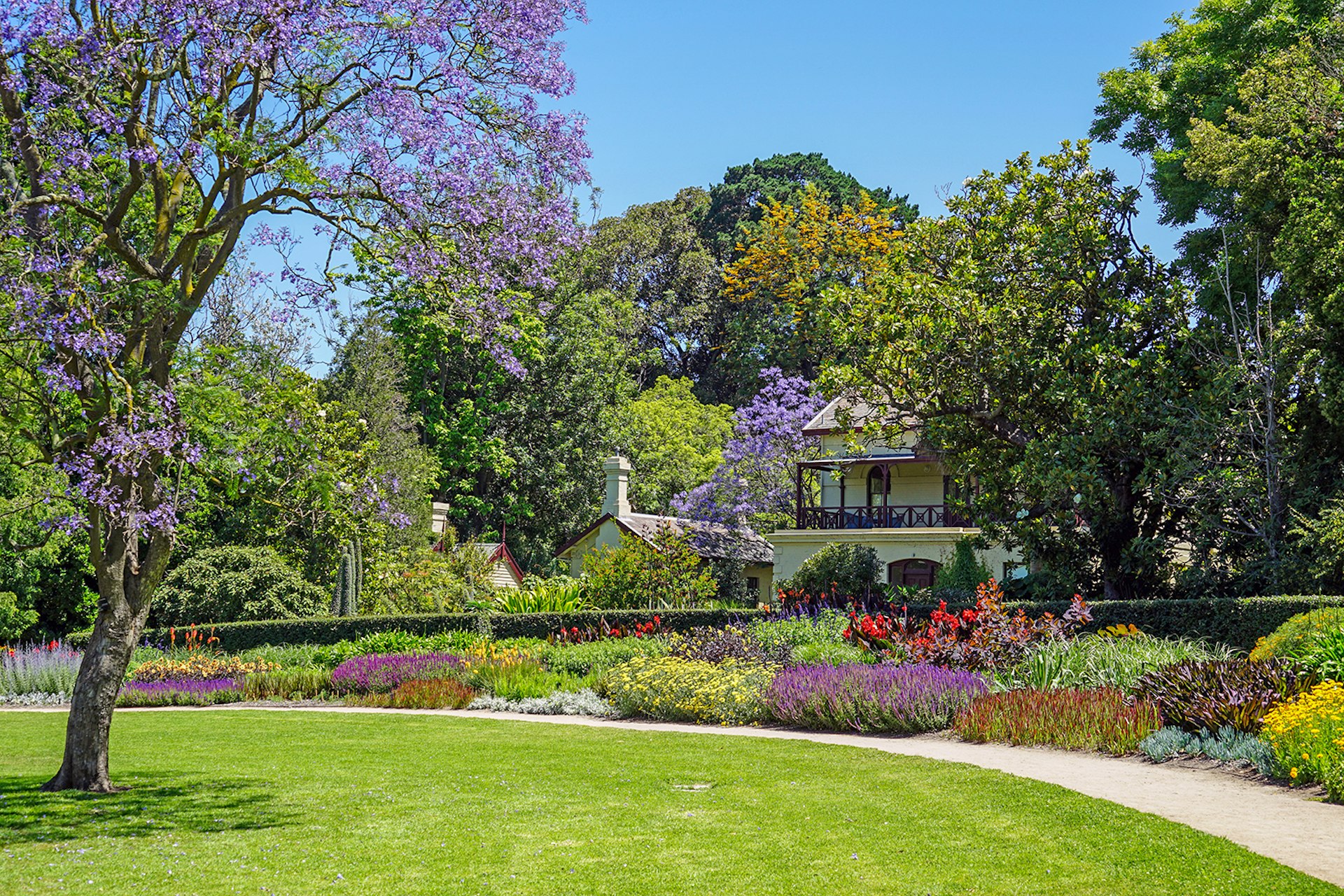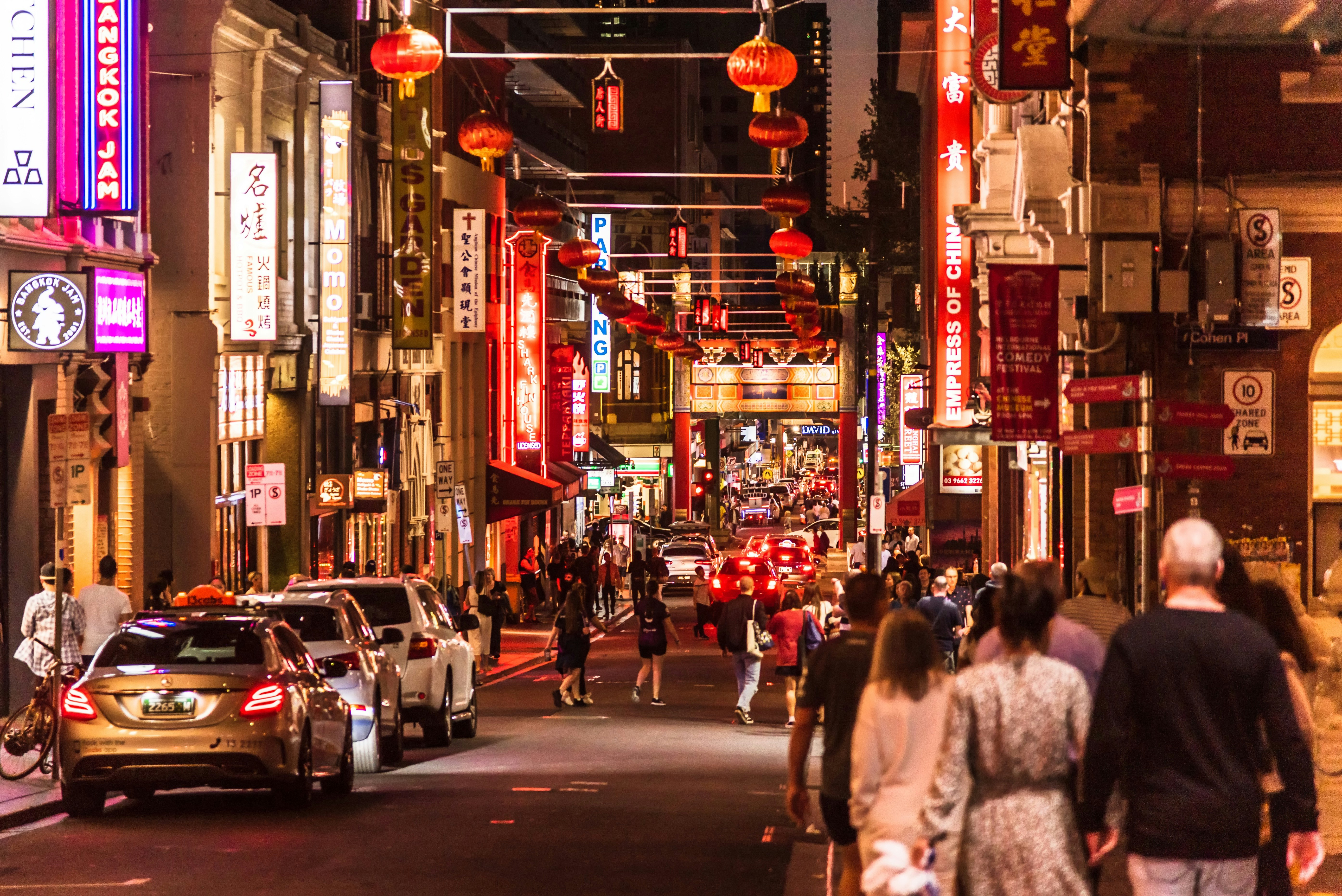Consistently ranked amongst the world’s most liveable cities, Melbourne isn’t a half-bad place to visit either.
Victoria’s capital has a wealth of attractions to keep you entertained, from sprawling markets and insightful museums to beautiful botanic gardens and vintage amusement parks.
Even better news: you can enjoy lots of these experiences without spending a single cent. Here’s our guide to the best free stuff to do in Melbourne.
1. Shrine of Remembrance
The statuesque Shrine of Remembrance, off St Kilda Rd, was completed in 1934 as a dedication to the men and women who lost their lives in WWI. Historical exhibitions shed light on the sacrifices made and it’s the site of some of Melbourne’s most important military and remembrance ceremonies such as ANZAC Day.
Visible from the other end of town, planning regulations continue to restrict any building that would obstruct the view of the shrine from Swanston St as far back as Lonsdale St. A climb up the steps of the shrine will be rewarded with fine views across the city.
2. Art galleries
The National Gallery of Victoria boasts an impressive collection with big names like Drysdale, Rodin, and Constable among the many permanent works that can be seen for free in its international collections. Its premier gallery on St Kilda Road is itself a work of art, worth a tour in its own right, with a lofty stained-glass atrium that will delight art aficionados. You’ll find the Australian Collection just up the road at the Ian Potter Centre in Federation Square, which includes a stunning ground-floor gallery of Aboriginal works.
While you’re at Federation Square, pop into the city’s celebrated ACMI (the Australian Centre for the Moving Image) for an interactive history of film and TV, including a good old dose of Neighbours nostalgia (Melbourne is the home of the iconic show, after all). Next up is the Australian Centre for Contemporary Art on Southbank – another architectural gem with a revolving exhibition calendar.
Planning tip: Still hungry for more? There are a number of private galleries in the Flinders Lane precinct with smaller exhibitions of local and international artists.
3. Melbourne’s laneways
Over the past decade, Melbourne’s laneways have gone from shortcut passages in the main city grid to proud canvases for some of the world’s best street art.
You probably won’t find Banksy’s work here (these have reportedly been painted over or destroyed, though at least one is said to remain), but what you will find is a dizzying mash-up of colorful murals by well-known local and visiting artists. Start at Hosier Lane (opposite Federation Square) and follow the maze of laneways heading north from there.
4. Market browsing
Melburnians love a good market, and the city is stuffed to the gills with them. In almost any neighborhood you can find markets selling fresh local produce, handmade crafts, secondhand treasures, or gourmet hawker dishes at some point in the week. Browsing is free of course, and there are usually plenty of food samples to taste if you’re tempted.
The star attraction is Queen Victoria Market in the center of the city, but there are plenty of less touristy markets to check out across town depending on where you’re staying. Try Camberwell Market for a Parisienne flea market vibe; the Rose Street Artists’ Market in Fitzroy to soak up some Melbourne creativity; the summer-time-only Night Market at Victoria Market for hawker-style food and live music; and the Farmers Market at Abbotsford Convent or the Collingwood Children’s Farm for a bit of rural idyll in the city.

5. St Kilda foreshore
When the hectic city scene gets too much, head down to breezy St Kilda beach for a different kind of buzz. Wander along the seafront promenade and down St Kilda pier to take in the views, watch the fishermen, or gawp at the gutsy kite surfers catching some waves.
Acland Street is prime people-watching territory with pavement cafes galore – locals and tourists alike come here to window-shop and drool over the street’s old-school European cake shops. Snap the obligatory photo in front of Luna Park’s iconic grin before heading inside to check out its creaky amusement rides of yesteryear, like the carousel and scenic railway rollercoaster. Unfortunately, you’ll need to put your hand in your pocket if you want to get involved – the rides aren’t free. Families should also seek out the St Kilda Adventure Playground – a real treat for older kids.
Planning tip: On Sundays, a craft market is set up along the Esplanade.
6. Koorie Heritage Trust Cultural Centre
You may be wandering around Melbourne wondering what the place looked like before British colonization two centuries ago. For an introduction to the region from the traditional custodians, the Wurundjeri people, and to learn about contemporary Koorie history and culture, head to the Koorie Heritage Trust in Federation Square.
A permanent social history exhibition is complemented by changing exhibitions by new and established Aboriginal artists. The Melbourne Museum also has excellent information on Indigenous social and cultural heritage but is only free for students and members.

7. City Circle Tram
This is your shortcut to seeing Melbourne city center without breaking a sweat or spending a cent (although your eardrums may not thank you – the commentary is informative enough, but a little too loud for all but the hardest of hearing).
The City Circle Tram trundles along a loop around the city and down to the waterfront precinct of Docklands. Heritage “W class” trams run the circuit with wooden chairs, and brass and leather hand straps like the originals from 1923.
8. City center architecture
Melbourne’s city center is rife with heritage-protected buildings of various eras and styles. Keep your camera in your hand as you wander the streets spotting the famous or quirky city buildings, old advertising paintings, and far-out futuristic structures.
Standouts include the Flinders Street Railway Station, Federation Square, Block Arcade, the Nicholas Building, and ANZ’s gothic headquarters.
Planning tip: Every July, you can go one step further and get a free peep inside many of Melbourne’s off-limits architectural highlights at the city’s annual Open House event.

9. Royal Botanic Gardens
Close to the hearts of all those who call Melbourne home, the Royal Botanic Gardens is a top place to engage with local life. Dating from 1857, this 38-hectare (94-acre) swathe of hilly green space at the edge of the city center is divided up into different themes with a lake at its center.
It’s the perfect place to enjoy a long afternoon picnicking and then stroll the myriad paths within the park. There is also a purpose-built children’s garden for families with a water fountain and man-made creek to splash in come summer.
Night and day, but particularly early in the mornings, you’ll be sharing the perimeter with fitness fanatics running the 3.84 km (2.38 miles) circuit of the garden known locally as “The Tan.”
Planning tip: Keen botanists should check the website for free guided tours.
10. Melbourne’s churches
You don’t have to be religious to appreciate the construction of some of Melbourne’s grand churches. The gothic St Paul’s Cathedral(opposite Federation Square) was built on the same site where the first Christian service in Victoria was held in 1835. A few minutes away are the St Michael’s Uniting Church and the Scots Church: both also architecturally impressive and quiet oases in the city.
11. The State Library of Victoria
The State Library of Victoria heritage building was established in 1854 and today, its collection numbers more than two million books. But you’re really here for the building. Its epicenter, the octagonal La Trobe Reading Room, was completed in 1913 when its dome was the largest of its kind in the world. Natural light illuminates the ornate plasterwork and the studious Melburnians who come here to pen their essays.
Grab a map at the front desk and go for a self-guided tour of the Reading Room and the exhibition galleries. The library also hosts a revolving door of exhibitions from literary to the fine arts, as well as free classes, workshops, talks, and kids activities.
12. Wheeler Centre
The founders of Lonely Planet funded the Wheeler Centre in 2010, the same year Melbourne was listed as a Unesco City of Literature. Occupying a portion of the State Library Building, the center is a space for “books, writing, and ideas.” Regular events, including workshops and talks from artists, writers, architects, and publishers are usually free to attend. Bookings can be made via the website.

13. Live music
After coffee, street art, and footy (Australian Rules football, of course) Melburnians love their live music. There are free gigs all over the city pretty much any day of the week. In the city center, Cherry is infamous as a rock venue and has a mix of free and paid-entry gigs. Also in town is Toff in Town.
If you prefer folk, blues, jazz, pop, or even Australian hip-hop (yep, there is such a thing) check listings in the local street press like Beat, which you can pick up at bars, pubs, and cafes, or the indy radio-station RRR’s online gig guide. Beyond the city’s center, suburbs such as Northcote (Northcote Social Club), Brunswick (Retreat Hotel), and St Kilda (The Esplanade Hotel) all have plenty of live music venues.
14. Free walking tours
To really get under Melbourne’s skin, ditch the downtown core and explore some of the city’s urban history in the increasingly gentrified neighborhoods of the inner north. Online walking tours of Collingwood, Abbotsford, and Clifton Hill are available from the local council’s website and take you past industrial icons like the Skipping Girl Vinegar sign (best seen at dusk), Abbotsford Convent, and Dights Falls, a series of rapids on the Yarra River.

15. Chinatown
Chinese miners arrived in Victoria in search of the “new gold mountain” in the 1850s and started to settle in this strip of Little Bourke St from the 1860s. For more than 150 years this section of central Melbourne, now flanked by five traditional arches, has been the focal point for the city’s Chinese community.
Explore a vibrant neighborhood of historic buildings filled with Chinese and other restaurants. Chinatown also hosts the city’s Chinese New Year celebrations. To learn more about the Chinese-Australian story, visit the excellent Chinese Museum.
16. Melbourne Town Hall
History and architecture aficionados will enjoy touring the Melbourne Town Hall. The building is made from a mix of bluestone and Tasmanian freestone and stands authoritatively on the main city thoroughfare of Swanston Street.
It is still a well-used venue with concerts, comedy, and public talks held in the main auditorium as well as the smaller chambers year-round. Another big draw is the Grand Organ dating from 1929.
Planning tip: To go behind the scenes and stand on the portico where The Beatles and Abba once waved to their adoring fans you can book a free Town Hall tour (weekdays only).

17. Parliament House
No, you can’t take popcorn with you for a session of Victorian parliament – but watching Australian politicians debating the latest in government policy can be entertaining. Check the government’s Parliament website to find out when you can spectate at the Legislative Assembly for free.
If watching politicians trying to score cheap political points in the luxe leather-and-wood environment of this stately house isn’t your thing, you may get more out of the free public tour instead.
18. Melbourne Airport and the RAAF Museum
Getting to the Royal Australian Air Force Museum in Point Cook may be a trek, but the aircraft and aviation displays are fascinating and free (donations are appreciated). Call ahead to enquire about the guided tours – they’re only on offer for groups of six or more, though you may be able to join another group.
For more aviation enjoyment on a budget, you can join the plane-spotters watching airplanes taking off from Melbourne Airport near the corner of Oaklands Road and Sunbury Road.
